The UK’s thirst for sports and energy drinks is seemingly unquenchable. According to Mintel, the market saw a rise in volume sales of more than 60% between 2007-12, reaching 578 million litres. And value wise, it was estimated at £1.2bn in 2012, which equates to a 64% increase between 2007-12. This is around 8% year-on-year, which Mintel puts down to consumers switching away from the more expensive on-trade channel to the less expensive at-home environment.
Energy drinks are the big stars, accounting for more than 80% of value sales at £1bn. Mintel says these drinks experienced an almost 80% rise in volume and value sales from 2007-12, with their functional positioning insulating them from cutbacks, while the market has benefited from the growth of new brands, as well as the ongoing marketing and NPD of established players.
Georgina McElwaine, GlaxoSmithKline (GSK) consumer healthcare category controller, comments: "During the past two years while the sports and energy category has been the fastest-growing category, not just in soft drinks but in the whole of grocery, energy drinks has significantly outpaced sports drinks. Part of the success of energy drinks is that they have combined a functional benefit with an emotional benefit. The brands offer consumers the boost they need while connecting with them in a relevant and engaging way."
Men aged 16 to 24 are the chief consumers of energy drinks and Mintel reports that usage peaks among those consumers who are in full-time education. Consumption is also higher than average among those in the AB and C1 socio-economic groups and those earning the highest incomes. It says: "The predicted growth in the former groups and the spending power of the latter, bodes well for the future of the market".
And over the period to 2017, the market is expected to benefit from growth in the number of 25-34s who, along with the 16-24s are core users of sports and energy drinks. Mintel therefore forecasts that the market will grow by 74% in volume terms over 2012-17, to a total of one billion litres in 2017, with value sales expected to grow by 63% to reach £2bn in 2017.
Amy Price, senior food and drink analyst at Mintel, comments: "Sports and energy drinks brands have benefited from their youth-focused marketing and strong associations with action sports, which have given them a fun and vibrant image. However, positioning the drinks as a lifestyle aid could more widely resonate with the majority of consumers who are leading busy lifestyles."
With energy drinks accounting for 42% of all soft drinks sales in forecourts (Litmus data), retailers should make the most of this profit opportunity by offering a wide range. So says Adrian Troy, head of marketing at AG Barr, manufacturer of the Rockstar energy range.
He points to the ’lifestyle aid’ value of energy drinks for forecourt customers: "Energy drinks cater to the needs of tired drivers looking to help maintain vital concentration levels, and are therefore a must-stock for forecourts."
Rockstar is valued at £34m and experiencing growth of 75% year-on-year (Nielsen).
Troy says two of Rockstar’s variants (original and xdurance) feature in the top five must-stock lines in forecourts (Litmus); and among core energy drinkers, Rockstar is sought out as a "better-tasting energy drink" with consumers "really connecting with the range of flavours".
According to Nielsen, ’flavoured energy’ is the fastest-growing sector of the energy market, up by 85% over the past two years and now representing 37% of category sales.
Rockstar comes in six flavours, all with vibrant packaging. Troy says: "Rockstar’s strength lies in its wide range of flavours and innovative NPD. This year the brand is reinforcing its reputation as the leading innovator in the energy category with the launch of a new and exciting flavour range Rockstar SuperSours."
The range, comprising two ’tongue-tingling’ variants, bubbleburst and green apple, taps into a growing consumer trend for sour flavours.
Troy says: "Sour flavours are growing in popularity at a rapid rate. Half of all energy drinkers consume sour flavours in other food and drink categories. By combining Rockstar’s unique energy formula with an electrifying sour taste, we are set to attract new shoppers to the brand as well as offering something new and exciting to the brand’s existing consumers."
Rockstar SuperSours has performed exceptionally in consumer taste tests 85% of those interviewed felt the range was "new and different" from any other energy drink currently available in the UK, with 68% saying they would definitely buy it. And 46% of those interviewed said they would buy Rockstar SuperSours alongside their current energy drink, meaning the brand should drive incremental sales in the category.
Rockstar is known for its ground-breaking NPD. Rockstar Pink was the first energy drink to be targeted specifically at women. Containing just 10 calories, it comes in a 355ml can.
And xdurance was launched last year in a resealable 500ml PET bottle in two flavours orange and berry an ideal format for forecourt customers.
Nigel Paine, commercial director impulse at Britvic, says research has revealed that many consumers like their drink in a can, as they feel they get a different type of refreshment flavour to a bottle. Also he says canned energy drinks have the largest share of the canned soft drinks market, with growth in double digits. It should come as no surprise then to hear that a new can format joins the 500ml PET to help broaden consumption occasions.
"Mountain Dew 440ml responds to consumer demand for a glucose energy can format, especially in convenience outlets. Exclusively available in wholesale, the Mountain Dew Energy and sugar-free Mountain Dew can formats offer consumers the perfect on-the-go energy boost, appealing to 18-24 year olds with its youthful personality and vibrant design," explains Paine.
According to Kantar data, Mountain Dew Energy has added £6.4m to the energy category since its launch in May 2010. Today the brand is worth £18.3m (Nielsen) and what is more, 64% of Mountain Dew Energy sales are incremental to the energy category.
Says Paine: "Awareness levels of Mountain Dew Energy have been driven by marketing investment which has seen a significant presence online, with the brand’s Facebook page coming in the top 15 for food and beverages in the UK."
Moving on, and the big news from Red Bull concerns flavours, with the long-awaited arrival of Editions. These are three new flavours with the same functional benefits as original Red Bull. The company says the Red Edition (cranberry), Silver Edition (lime) and Blue Edition (blueberry), give retailers "a real opportunity to drive incremental sales in the fastest-growing soft drinks category".
Tom Smith, Red Bull trade communications manager, says: "Offering them a range of new flavours using the strength of the Red Bull brand will deliver against the number one barrier to energy drinks, which is taste, and ultimately drive penetration into the category. The launch will bring in new shoppers to the category by offering a range of popular flavours from the market-leading brand."
As well as the new flavours, Red Bull is backed by a comprehensive marketing calendar during 2013, with an increased media spend to £22m. There will be various events throughout the UK including the return of Red Bull Cliff Diving, Soapbox and Revolutions in Sound. Plus there’s the ongoing success of Red Bull Racing in Formula 1.
TV advertising will continue to communicate how Red Bull "enables people to take the next step towards their dreams or goals". There will also be new POS available to bring excitement to the category, featuring various Red Bull events and athletes.
New flavours are always a hit, and GSK reports that its Lucozade Energy pink lemonade has been experiencing "astounding" sales since its launch and has generated twice the repeat sales of its Energy cola launch back in 2011. Sales of pink lemonade reached £1.6m in its first six weeks, against the £1.4m achieved by the cola variant (Nielsen). In addition the repeat rate of sale for pink lemonade has achieved 19% versus 10% for Energy cola (Kantar).
Health kick
Mintel reckons healthier varieties have potential in the UK energy drinks market, with almost three in 10 consumers already drinking diet/sugar-free or low/no-calorie versions and almost six in 10 sports/energy drinks users wanting to see healthier options. With around three in 10 non-users saying that sports and energy drinks ’are not very good for my health’, the research company says there is a need to keep on developing healthier varieties that help reduce any concerns on this issue.
GSK’s McElwaine says health has been the most dominant driver of growth within the sector. "In particular, we are seeing a strong growth for those products that have been tailored to health needs; low calorie energy drinks have enjoyed the biggest growth at +30% (Nielsen). These trends look set to continue and we would expect to see further diversification of sports and energy drinks in the future as new sectors emerge to meet consumer demands. The energy sector has plenty of room for growth."
Lucozade Sport’s health claim is that as an isotonic carbohydrate-electrolyte drink, it has been scientifically proven to hydrate and fuel better than water.
New advertising for the brand brings this to life, featuring three leading rugby ambassadors from England, Scotland and Wales Chris Robshaw (England), Richie Gray (Scotland) and Leigh Halfpenny (Wales). Alongside the £1m investment on outdoor and digital advertising, there is a range of POS material tailored to feature the ’hero’ player for each country.
Simon Freedman, brand director for Lucozade Sport, says: "There is a lot of evidence to show that when big sporting events are held, sports participation increases significantly. The RBS Six Nations represents a huge sales opportunity for Lucozade Sport and the sports category as a whole as over 250,000 rugby fans will be playing or watching rugby during this period. Our campaign reinforces how we are helping rugby players across the UK to improve their performance by drinking Lucozade Sport instead of water before and during matches.
"We would encourage retailers to take full advantage of this campaign by stocking up on Lucozade Sport and ensure they maximise use of the POS material available such as dumpbins, wobblers, barkers and posters to create in-store theatre," concludes Freedman.
Price points
According to Mintel, the cost of energy drinks is the biggest barrier to consumption, with around half of non-users of both sports and energy drinks agreeing that the products are expensive for what they are.
AG Barr’s Troy recommends that retailers offer a combination of value tier products, price-marked packs and strong promotional activity, alongside premium brands. "Value is still a key focus in the energy market with consumers seeking affordable options. Stocking price-marked packs, which clearly represent value for consumers, is a simple way to drive sales. Rockstar is available in 99p price-marked packs, offering retailers a great mid-tier range."
And price-marked packs continue to be a major part of Boost’s strategy to support independent retailers. Simon Gray, managing director and founder of Boost Drinks, explains: "As a champion of the independent retail sector, price-marking forms a major part of our business and marketing strategy. Our aim is to price our products at a point which offers the consumer great value for money to drive sales and increase brand loyalty, while at the same time ensuring great profit margins for retailers."
He promises more from Boost this year including the launch of a new packaging design for the flagship Boost Energy products to give the 500ml and 1ltr bottles a more premium feel. There will also be new formats and flavours as well as the brand’s biggest-ever marketing campaign.
Meanwhile, Monster Energy is currently available in an exclusive £1.19 price-marked pack for independent retailers.
Monster Energy original, ripper, khaos, lo-cal and rehab lemonade all feature the value-for-money offer.
Stuart Agates, head of energy at Monster Energy distributor Coca-Cola Enterprises (CCE), says: "After four years of exceptional growth, it’s important we maintain momentum with strategic launches and marketing activity this year. Energy is a dynamic sector and it’s important that we use targeted activity to build on existing demand and bring in new consumers. Our goal is to add incremental value to the sector and we can help retailers achieve this by demonstrating which energy SKUs should form the basis of a core range.
"The introduction of the £1.19 price-marked packs is the first of many exciting announcements for the Monster brand this year."
A tailored range of POS material and bespoke display solutions is available to support the entire Monster Energy portfolio.
And, in a bid to broaden Relentless’ appeal and attract new energy drinkers to the sector, CCE is launching a 250ml can of Relentless Origin. With a competitive rrp of 79p, the pack is designed to make branded energy drinks "more accessible for consumers".
There is also a new Relentless variety lemon ice. The sparkling lemonade drink scored well in consumer research and sits alongside the existing Relentless variants including berry juiced, tropical juiced and orange, which have all benefited from a reformulation that offers consumers a ’best-ever’ taste.
To further support convenience retailers and drive trial of the brand, CCE also has new £1 price-marked 500ml cans of Relentless origin, apple & kiwi, lemon ice and sugar free. Available in wholesale outlets at certain promotional periods throughout the year, the first wave of £1 price-marked packs are out now.
CCE’s Agates says: "The updated range will strengthen the brand’s existing position within the sector by bringing in new consumers and in turn, delivering an incremental sales boost to retailers.
"Brand awareness and demand is also due to be higher than ever as we’ve tripled our year-on-year spend for TV and digital advertising, securing Relentless energy drink’s position as a must-stock for retailers."
But as well as price-marking there are new value lines launching all the time.
Dr Rami Ranger MBE, chairmanof Sun Mark, says his company’s Bulldog energy drink has a similar taste, quality and ingredients to that of the market leaders, but costs less than half the price. "As a result, the consumer gets a product which represents very good value for money and full satisfaction."
The drink is available from wholesalers in cases of 24 x 250ml for £3.99 plus VAT, and the recommended retail price is 35p. It is available in price-marked (35p) and non-price-marked packs.
Ranger says that in its first year, Bulldog sales have reached over 100,000 cases a month and the volume is rapidly growing. It is listed in Londis and also available in many cash and carry outlets including Dhamecha, East End, TRS, Natco, and Blakemore.
Bulldog is available in a mixed fruit flavour, which Ranger says is great for those consumers who don’t like the after-taste of many of the energy drinks on the market.
Brand support comes from display fridges, banners, posters and free stock for sampling to help build customer confidence. The drink is also advertised on many ethnic TV channels, radio and on the back of buses.
Finally, Simon Green, marketing director at Global Brands, says forecourts are an important part of the trade for the company’s Kick Energy.
"Consumers’ broader understanding of the category and the functional benefits of energy drinks has contributed to their growth, and retailers can capitalise on the category’s potential by offering a focused range of well-supported brands. While it’s important to ensure consumers have choice, retailers should avoid giving fridge space to products which add little value."
Much of Kick Energy’s value comes from its eye-catching promotions.
Green explains: "Kick Energy’s on-pack promotion activity in the off-trade is helping to boost awareness of the brand as Kick is exclusively linked to computer gaming and gamers, who make up 68% of all energy drinks consumption. Thirty per cent of 18-34-year-old gamers visit the on-trade at least twice a week, and because they look to replicate their on-trade experiences at home, this market is extremely important to retailers in the off trade.
"In 2012, Kick was the Official Energy Drink for the third biggest film in cinematic history, Marvel’s Avengers Assemble and partnered with the associated Facebook game, Avengers Alliance, which had 9.2 million monthly users. We also launched our fifth high-profile on-pack promotion with Ubisoft’s Far Cry3, with the limited-edition cans available exclusively to the off-trade market.
This year’s on-pack campaign involves Square Enix’s Tomb Raider. Over three million special-edition cans featuring the world-famous heroine, Lara Croft, are currently entering the trade and, for the first time, the promotion will be transatlantic, running in both the UK and the US.
Using on-pack QR code technology, consumers scan the can with a smartphone to access the bespoke Tomb Raider micro site. Once there they have the chance to win the ultimate prize of an exotic island escape or one of 100 copies of Tomb Raider.
In addition, every Tomb Raider Kick Energy can purchased will entitle the consumer to free music downloads from a BAFTA winning artist.
The activity will be supported via branded free-standing display units, in-store sampling events and a heavyweight social and digital media campaign.
Kick energy also has links to motorsport, as the official energy drink of PBM British Superbikes Team, and MJW Kawasaki will run the Kick Energy colours on all of its Kawasaki machines for the 2013 Motocross season.
Retailer View
David Cox, Saintfield Service Station, Lisburn:
"Red Bull is our best-selling energy drink by miles. In fact the 250ml can is our best-selling impulse small drink, followed by Coke 500ml.
"Energy drinks are most popular with young men but we have a lot of lorry drivers and workmen buy them too.
"We also stock Relentless, Blue Bear (Spar brand) and S budget (cheap Spar brand). Price is becoming more important. Most people will still pay the Red Bull price we want people to buy the more expensive brands as it improves turnover and cash margin. But some of the budget brands are catching on. This is because we sell Red Bull at £1.49 against S Budget at 42p.
"We have no problem making space for energy drinks and there is never any shortage of drinks merchandisers calling on us to help us out."
NPD at a glance...
Red Bull Editions in Red (cranberry), Silver (lime) and Blue (blueberry) variants
Rockstar SuperSours in two ’tongue-tingling’ variants: bubbleburst and green apple
Mountain Dew Energy in 440ml cans
Relentless in a 250ml can
Relentless lemon ice
Marketing support...
Red Bull backed by a £22m campaign
Lucozade Sport supported by advertising featuring rugby players
Kick Energy features a Tomb Raider on-pack promotion
Price-marked packs available on many brands including Boost, Bulldog, Monster, Relentless and Rockstar






















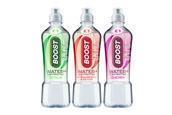

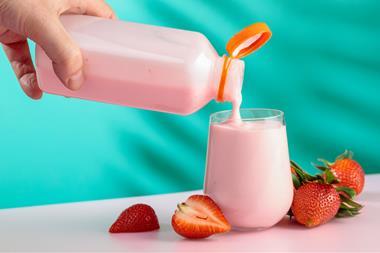
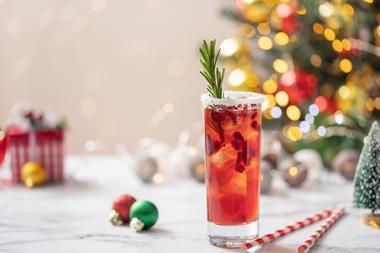
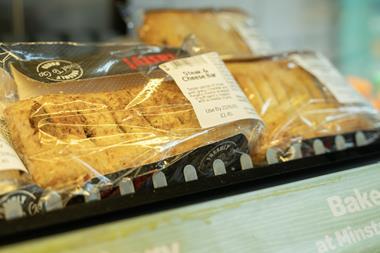
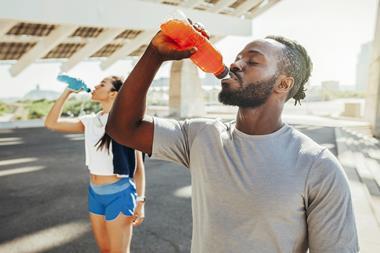
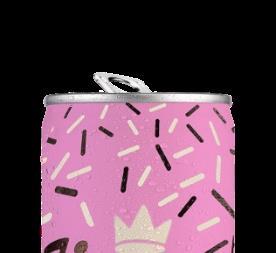
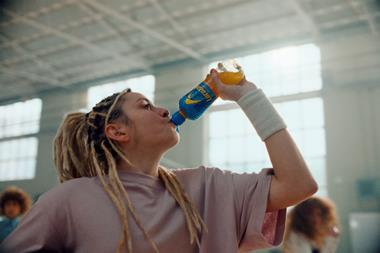
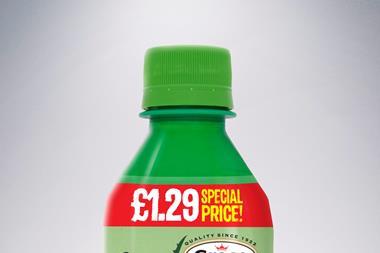
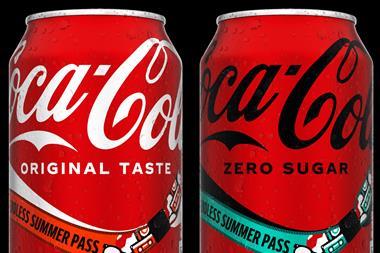
No comments yet